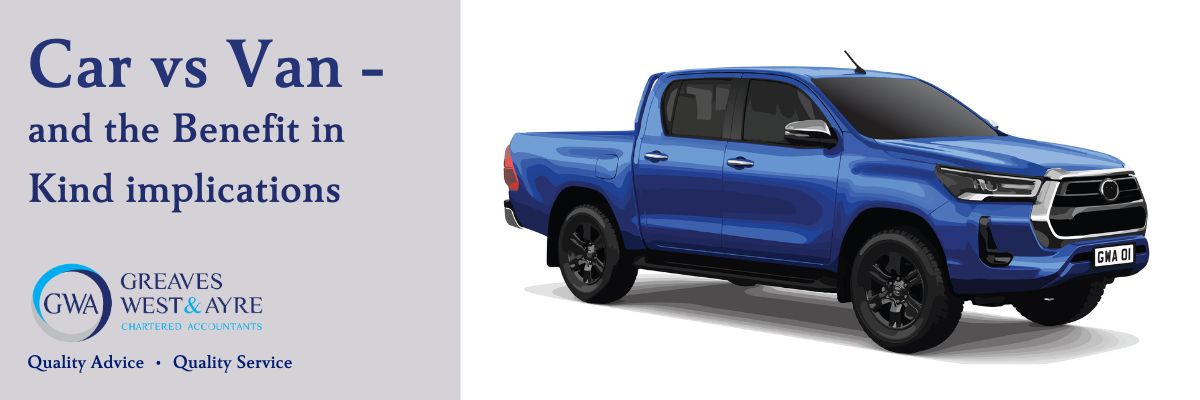Car vs Van – Benefit in Kind implications

If you are considering purchasing a company car, it is important to understand the benefit in kind (BIK) implications. The BIK rules tax any private benefit a director or employee receives from the company. For any vehicle, you need to determine if it is classed as a car or a van. The tax treatment of cars and vans is different, and from both an employer and employee perspective, van classification is far more beneficial.
To put it simply, the classification of a vehicle depends on what it’s primary use is. A van is primarily suited to carry goods, whereas a car’s primary function is to carry passengers. It is important to remember that what a vehicle ‘looks like’ inside overrides it’s outward appearance.
The details lie in the case law. One of the most prevalent cases is Coca-Cola vs HMRC. Coca-Cola provided employees with modified vehicles based on a panel van design but with a second row of seats behind the driver. Employees could use the vehicles privately, which meant the BIK position had to be considered. Coca-Cola argued that the vehicles were vans, but HMRC said they were cars.
It was ruled that these vehicles were cars rather than vans. The conclusion was that they were multi-purpose vehicles, and they could be used for both carrying goods and passengers.
However, there is a particularly complicated area where vehicles typically called ‘double cab pick ups’ have to be assessed on their payload. It has been established that regardless of how it looks, a double cab pick up must have a payload of at least one tonne to get the van BIK treatment, otherwise it will be treated as a car.
This means that specifications for vehicles such as the INEOS Grenadier, the Mitsubishi Outlander, and the Ford Ranger need to be considered in detail to ensure the correct treatment.
If you think any of your employees have been provided with these multi-purpose vehicles, you should check how these have been treated for BIK purposes. For any such vehicles, where private fuel has also been provided, it is worth checking if the associated mileage logs can be used to make good all private fuel provided since 6 April 2023, to avoid a fuel scale charge in addition to the car benefit. If you are planning to buy any double cab type vehicles in the future, we would advise you to be clear on what the real purpose of the vehicle is. If it is needed primarily to carry goods, then the best advice would be to purchase a clearly definable van – with just one row of seats and no windows on the rear sides. If you choose to purchase a vehicle that has a second row of seats and rear windows, it could be treated as a car.
An extra word of caution – even greater care should be taken when it comes to the VAT treatment of these vehicles, as the rules are much more stringent. If you are thinking of purchasing a new ‘multipurpose’ style vehicle for a director or employee then please speak to us beforehand. We can look at both the VAT and Benefit in Kind implications of doing this.


